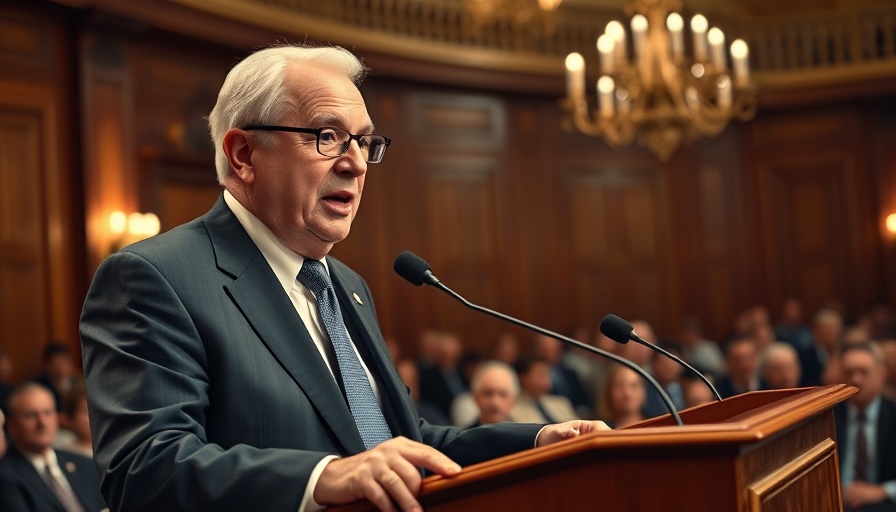
Understanding the Recent Abortion Amendment
In recent discussions surrounding the recent abortion amendment, an important conversation is taking place not just in the political arena but also within our faith communities. This amendment has stirred emotions and deep reflections among Christian individuals and seeking spiritual minds alike. As religious beliefs often intersect with personal matters of life and family, it becomes even more crucial to approach the topic with empathy and perspective.
In 'The recent abortion amendment,' the discussion dives into the emotional and relational nuances of this hot-button topic, exploring key insights that sparked deeper analysis on our end.
The Importance of Compassionate Dialogue
Listening is a vital component in these discussions, especially when dealing with sensitive issues like abortion. Many individuals have personal stories that shape their views, and it's essential to create space for open and respectful conversation. By fostering an environment where members can express their feelings and experiences, community-oriented groups, such as churches, can bridge the gaps in understanding and encourage healing.
History and Context: A Spiritual Perspective on Abortion
The discussion surrounding abortion is not new, tracing back through cultural and theological debates over decades. Understanding the historical context of such discussions can bring clarity and insight into our present-day conversations. As Christians, it’s vital to reflect on Biblical teachings and how they inform our views on life and choices, recognizing the complexity of individual situations and spiritual beliefs.
Bridging Perspectives: Counterarguments and Thoughtful Insights
The recent amendment challenges us to explore various perspectives. On one hand, there are those who uphold the sanctity of life from conception, reflecting a deeply ingrained belief in God’s creation. On the other hand, many empathize with the precarious positions women face, emphasizing the need for support and understanding instead of judgment. Engaging with diverse viewpoints enhances our own understanding and acknowledgment of each person’s journey.
Finding Common Ground in Community Connection
Churches and community groups can provide a rich foundation for navigating these discussions. By offering nurtured spaces – whether through youth gatherings or family fellowship programs – we can create platforms that encourage exploration, support, and the sharing of collective wisdom. This connection not only emboldens individuals to express their truths but also invites others into their experiences, thus fostering a sense of unity amidst differences.
The Role of Faith: Inspiration and Guidance
As we navigate the intricate landscape of the recent abortion amendment, let us draw from our faith. Inspirational anecdotes and quotes from religious leaders can guide our hearts in how we approach one another with love and understanding. It’s in these moments of connection that we can truly reflect Christ’s love—empowering our communities as we collectively seek wisdom and understanding.
Through compassionate dialogue, historical context, and communal support, we can transform a divisive topic into an opportunity for collective growth and stronger relationships. By encouraging open conversations that respect varying perspectives and cherishing individual experiences, we can emerge with a more profound understanding of the amendment and its implications for our communities.
 Add Row
Add Row  Add
Add 








Write A Comment